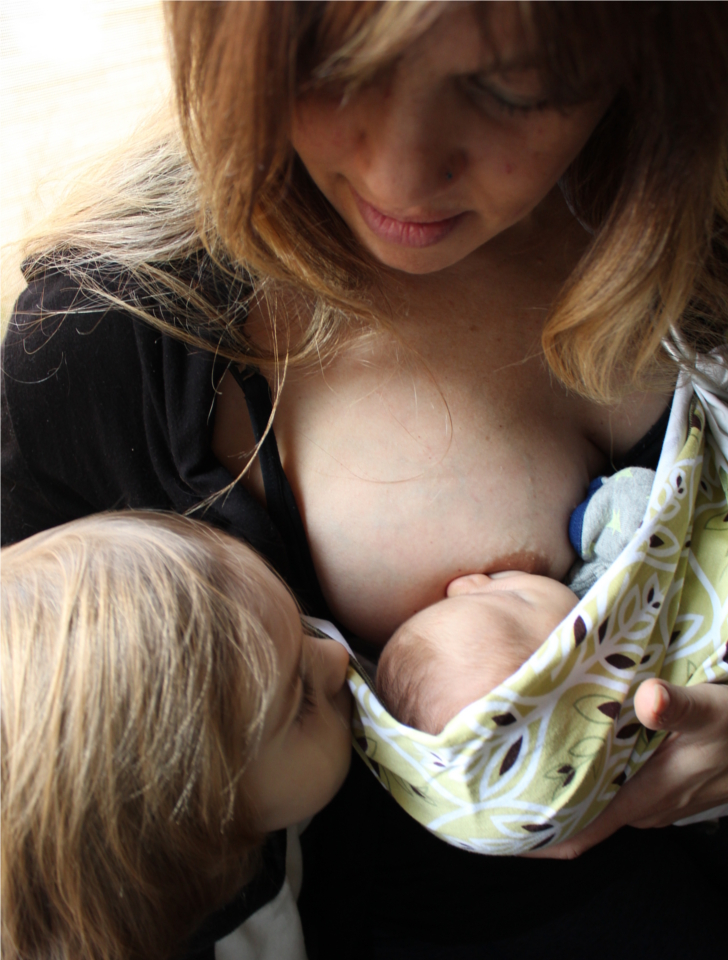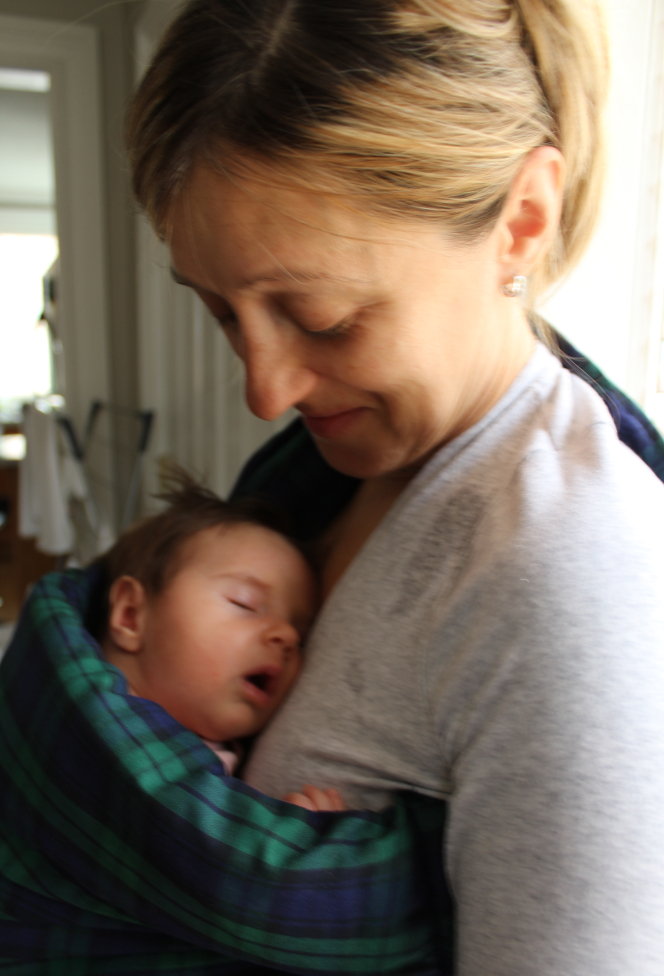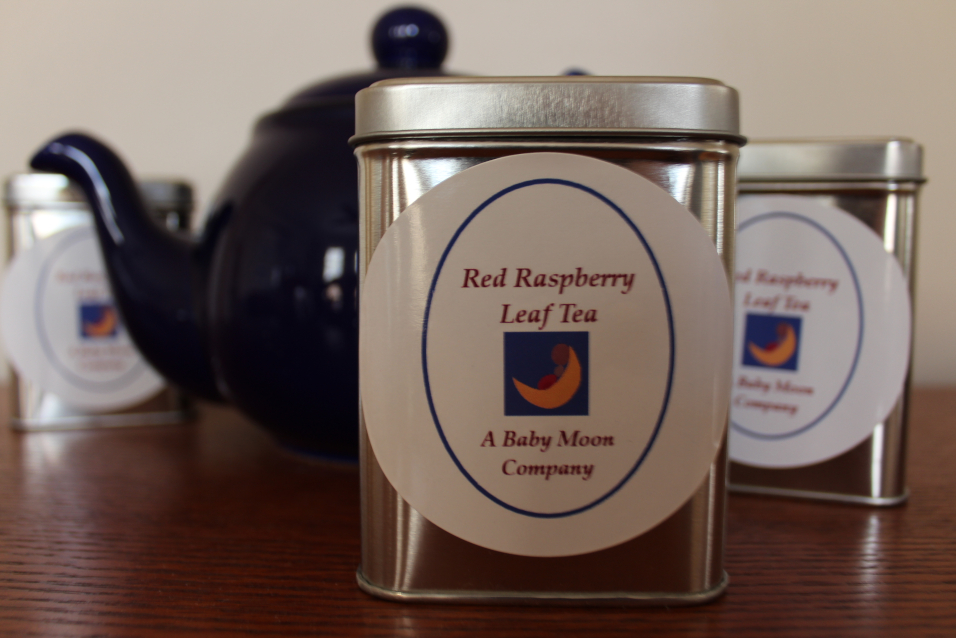Breastfeeding Basics
Beautiful New Beginnings
Although breastfeeding is natural, it doesn't always come naturally. It is a learned skill that can be learned more easily with some basic knowledge and specific supportive information from a mentor.
 |
|
The early hours and days are important in getting breastfeeding off to a good start. Having your baby placed skin to skin on your chest as soon as possible following birth is an excellent way to begin the process of successful breastfeeding and bonding.
A baby may or may not latch on to the breast in the earliest of skin to skin experiences. It is still a good thing to hold your baby on bare skin and relax together during those first moments. Your baby may just nuzzle, smell or lick your nipple or breast. Your baby may attempt to latch on to your breast clumsily or like a pro. During those first moments you are both learning. There is no need to rush. It's okay to relax together.
Your mothering instincts will be stimulated during these early moments together as well. You will survey all the folds of your baby's skin, check fingers and toes. You will caress, smell and marvel at the miracle you just brought into your world. Protect and savor these moments. They begin to build a connection that will underscore your future parenting. If you miss some of these moments immediately following the birth of your baby - don't panic - you can recreate skin to skin moments over and over again. In fact you can plan on it. Over the weeks of early parenting skin to skin time should be included as frequently as possible.
|
Expect frequent nursing during the initial days after your baby's birth. Nursing 8 - 12 times in a 24 hour time period will provide your baby and you the best opportunity to begin a successful breastfeeding relationship. These frequent nursing sessions during your baby's first first weeks of life are important for establishing your milk production. |
 |
There are a variety of ways to hold a baby for breastfeeding. The hold that feels the most natural and comfortable to you is usually the best way to hold your baby for breastfeeding. There are circumstances that may require a unique hold to promote a good latch for baby and comfort for a breastfeeding mother. For example; following a C-section a hold that doesn't put any pressure on the mother's incision.
Having support your following your baby's birth is extremely valuable. Family, friends and trusted mentors can help you enjoy the early days, weeks and months of life as a parent. Having a postpartum doula after your baby arrives is one way to get help that will benefit you. A lactation consultant can help you learn and develop your breastfeeding skills. Reach out. Get the support you deserve.
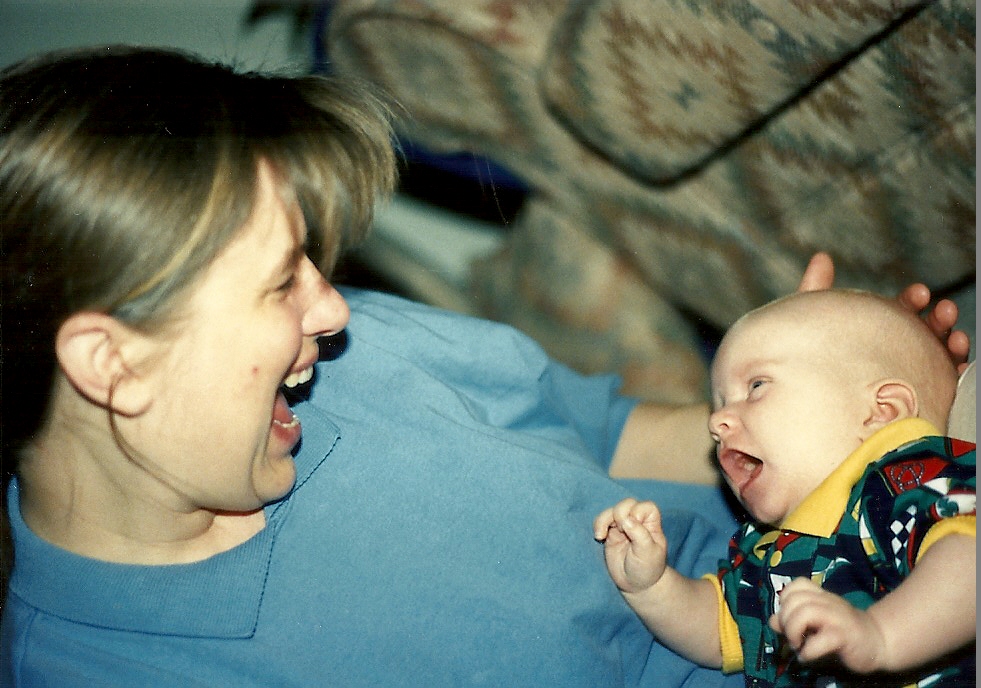
A Baby Moon Company™
You deserve the best company during your baby moon!
A Baby Moon Company™
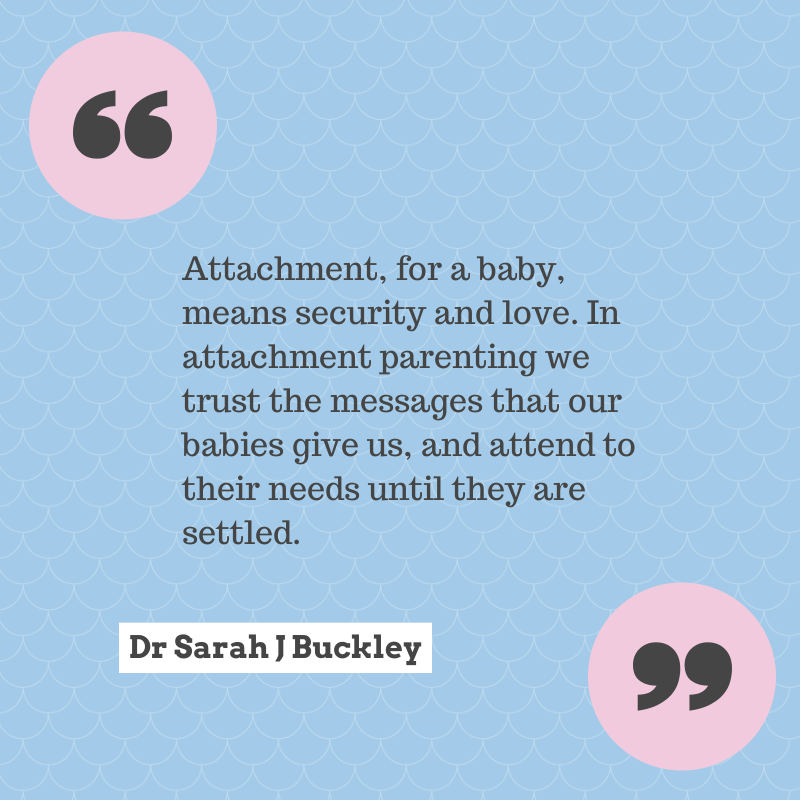

Sometimes it's the little things.
- Babies imitate.
- Babies tune in and listen to your voice and your praise.
- Babies are primed to nurse and to learn.
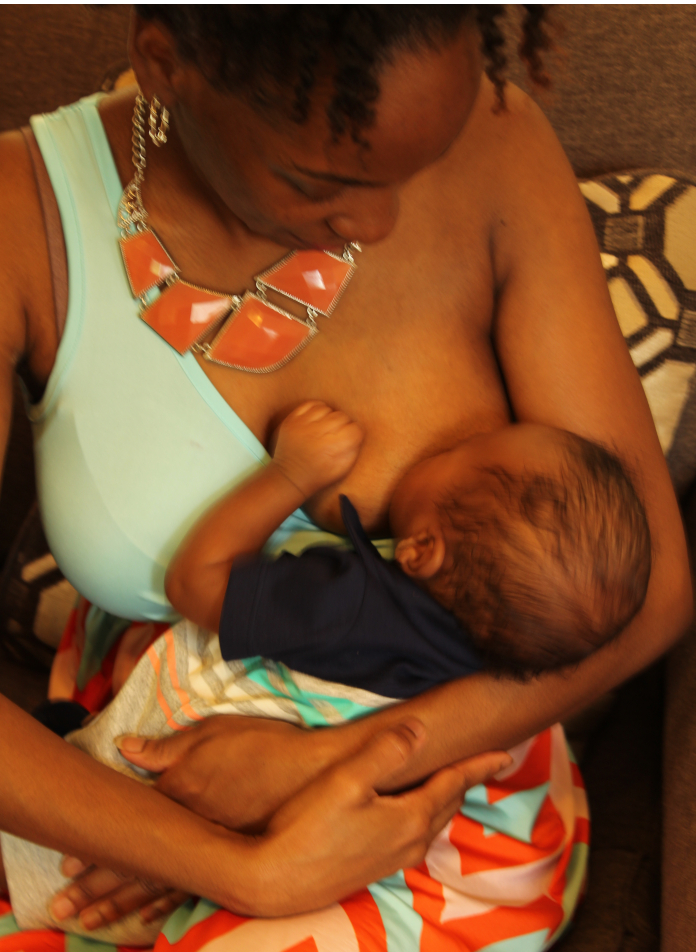
Support your baby's shoulders and hips. Avoid placing a hand directly on the back of a baby's head when nursing. Placing a hand on the back of baby's head will illicit an opposite reaction of pulling away from the breast by baby. Babies have good instincts including to spare themselves from having all of their airways covered.
